
Groupshow
Reruns
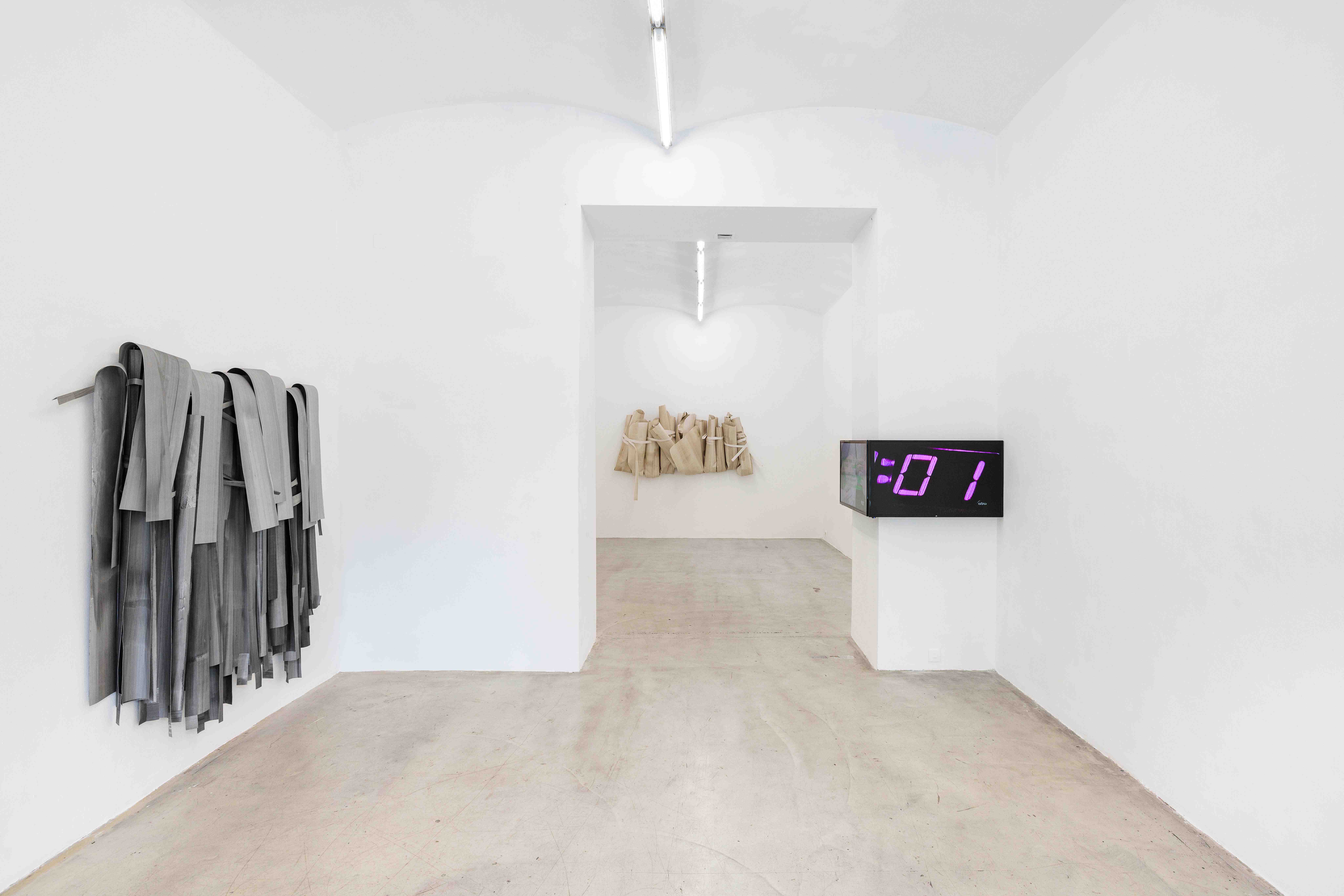
Advertisement
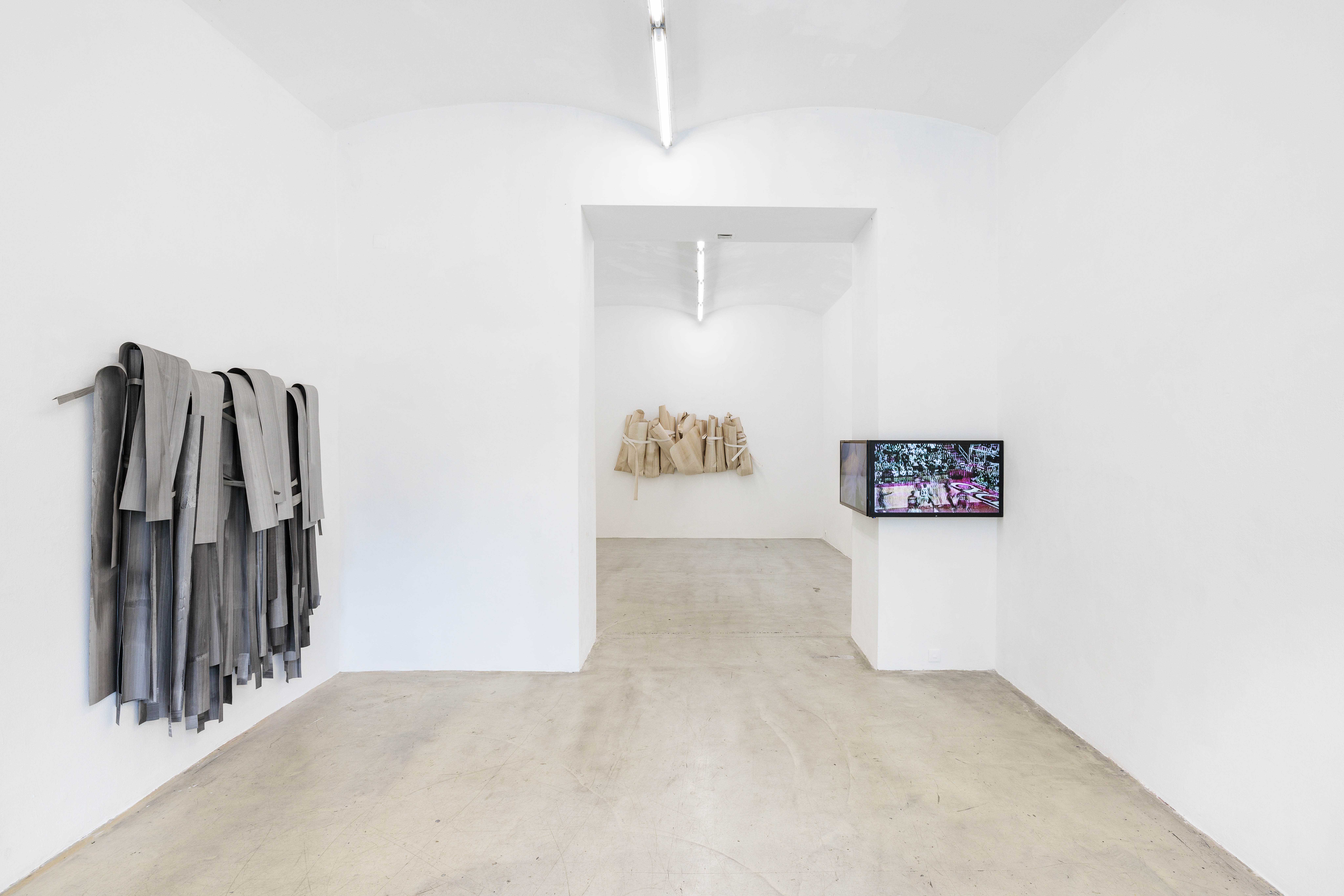
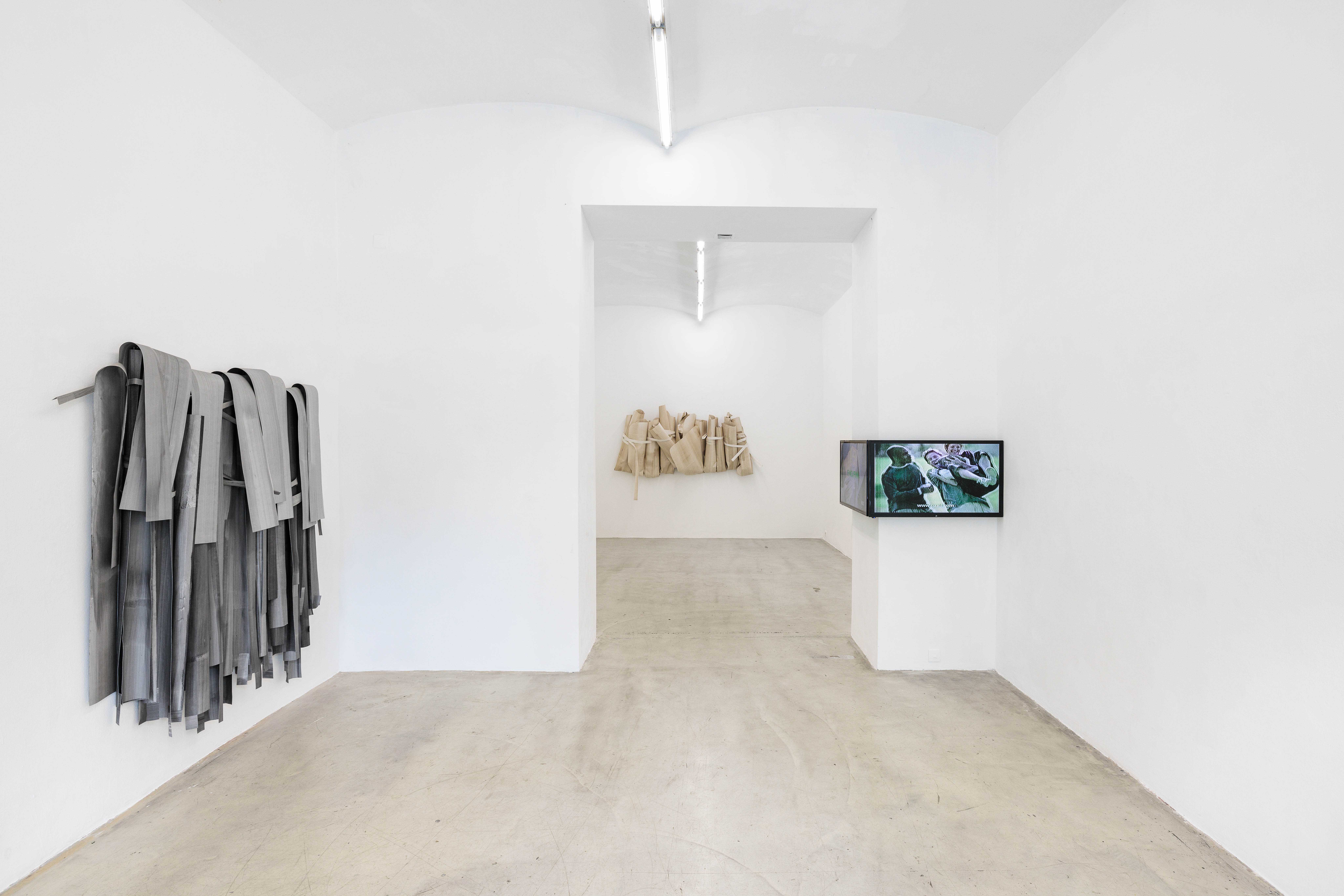
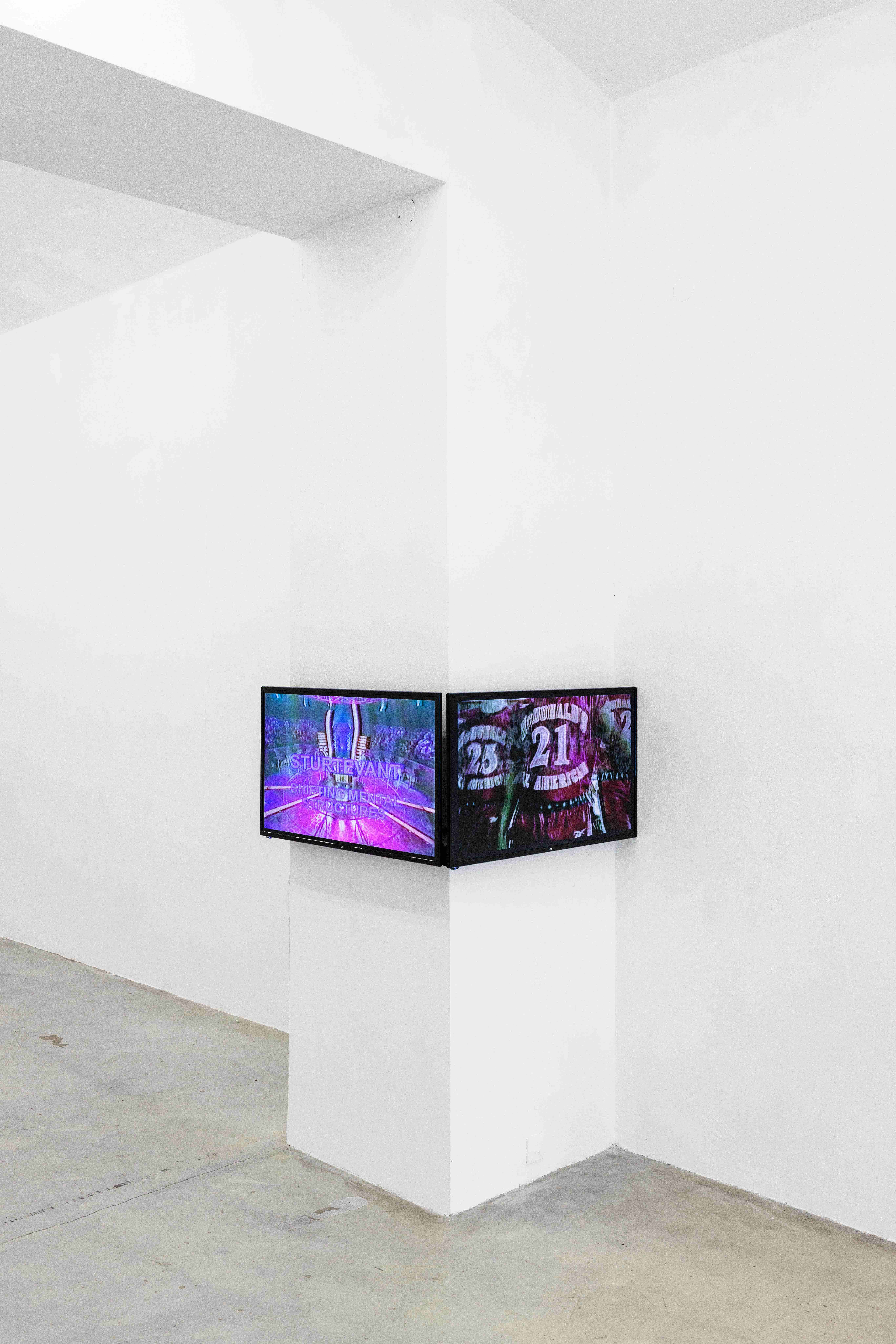
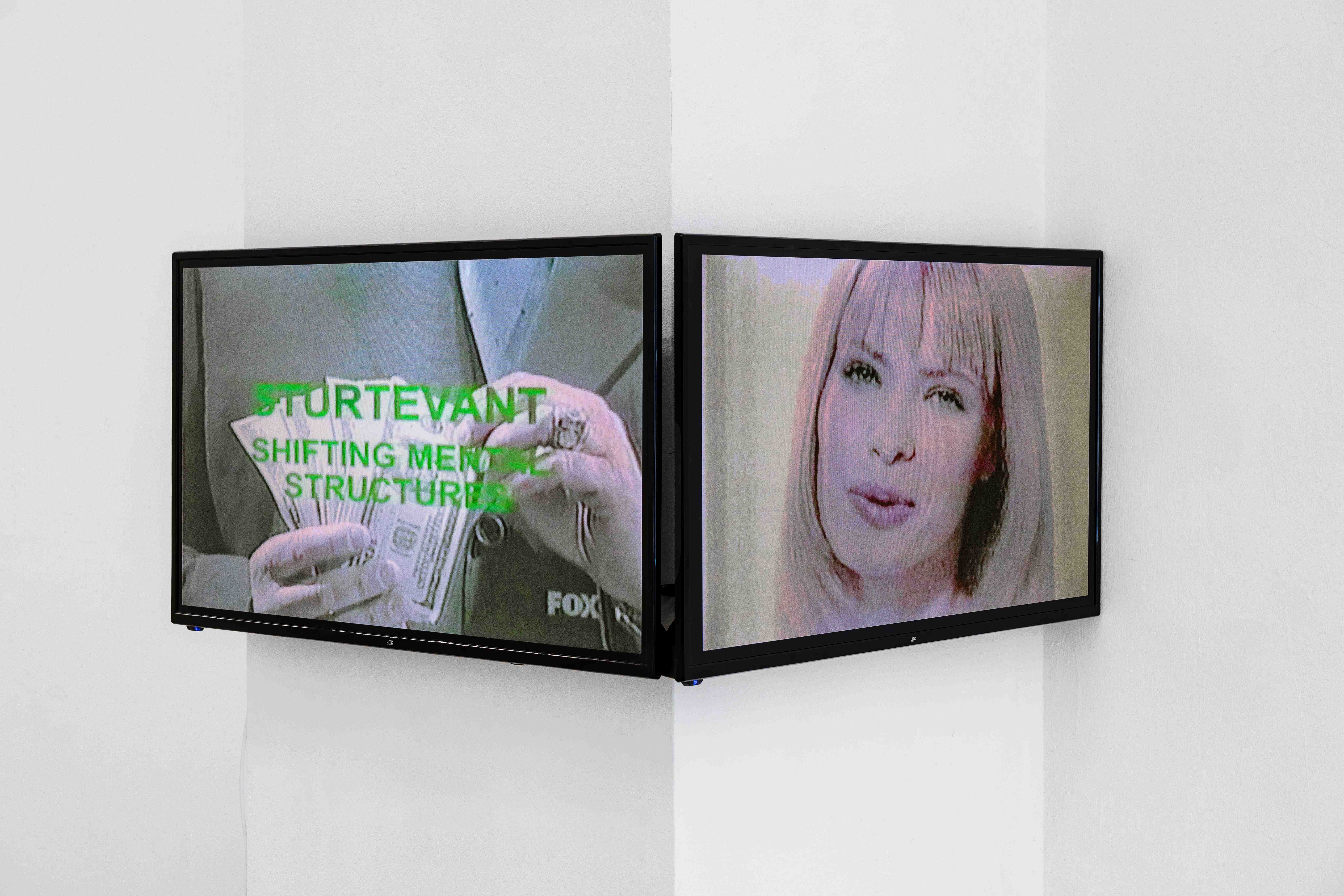
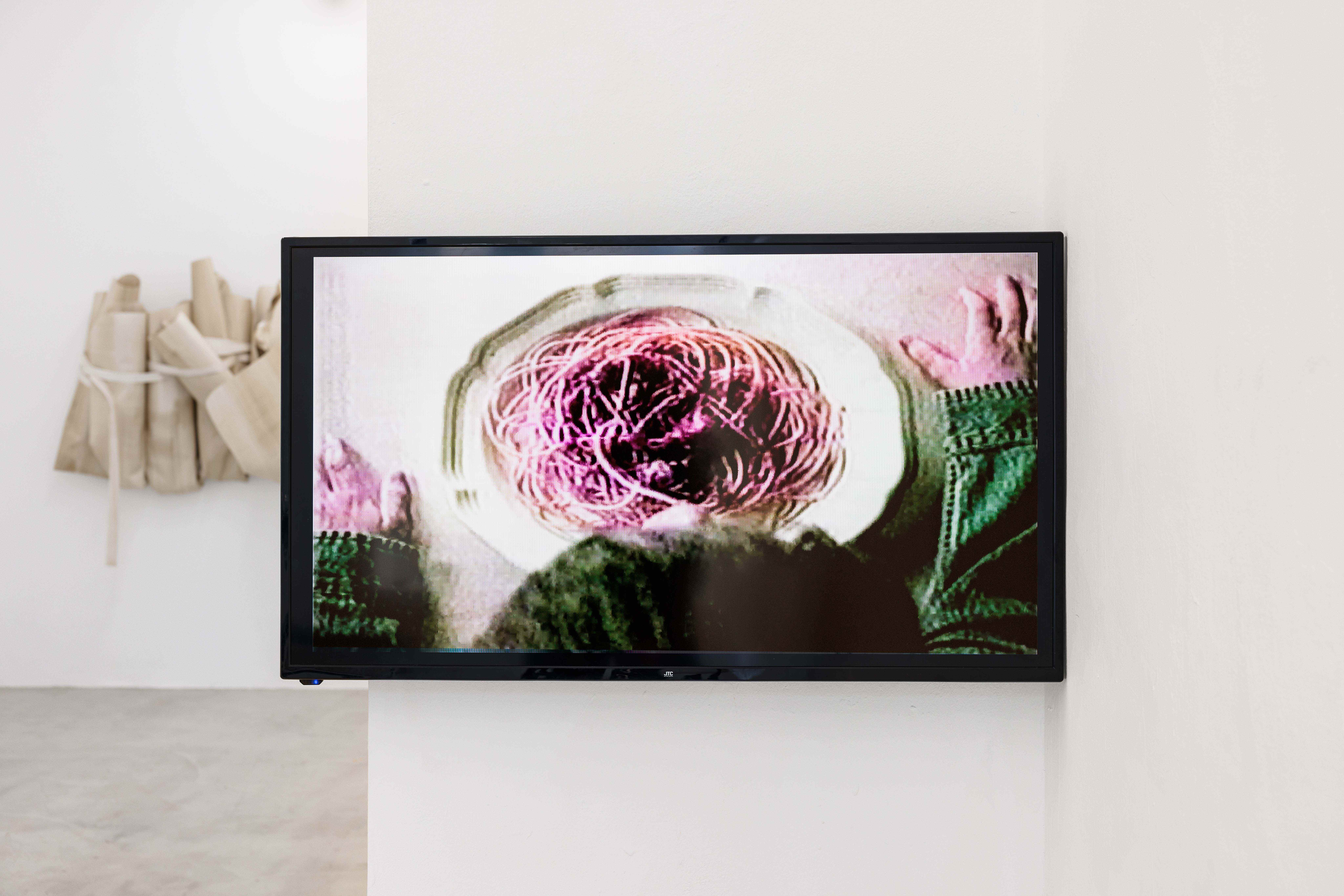
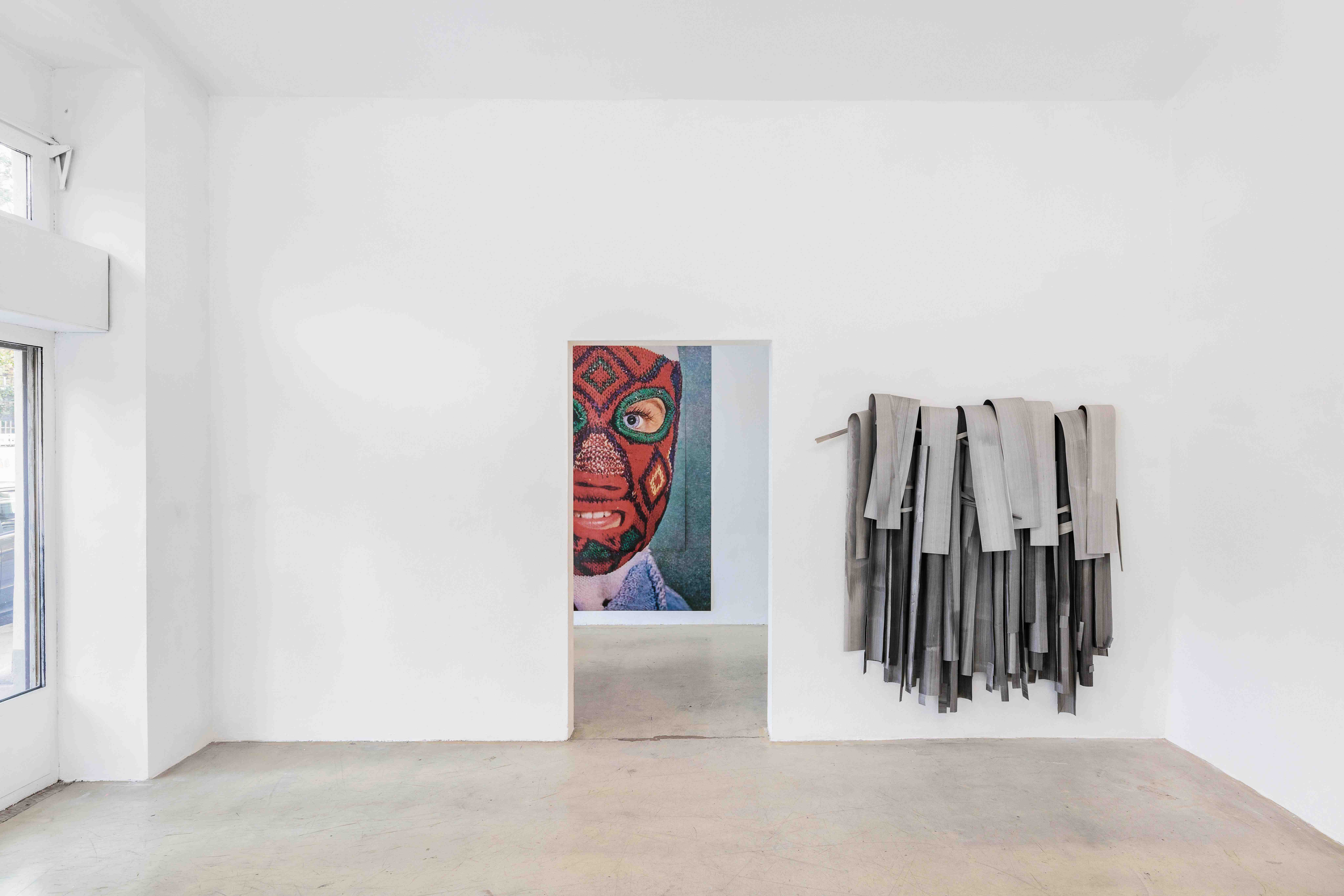
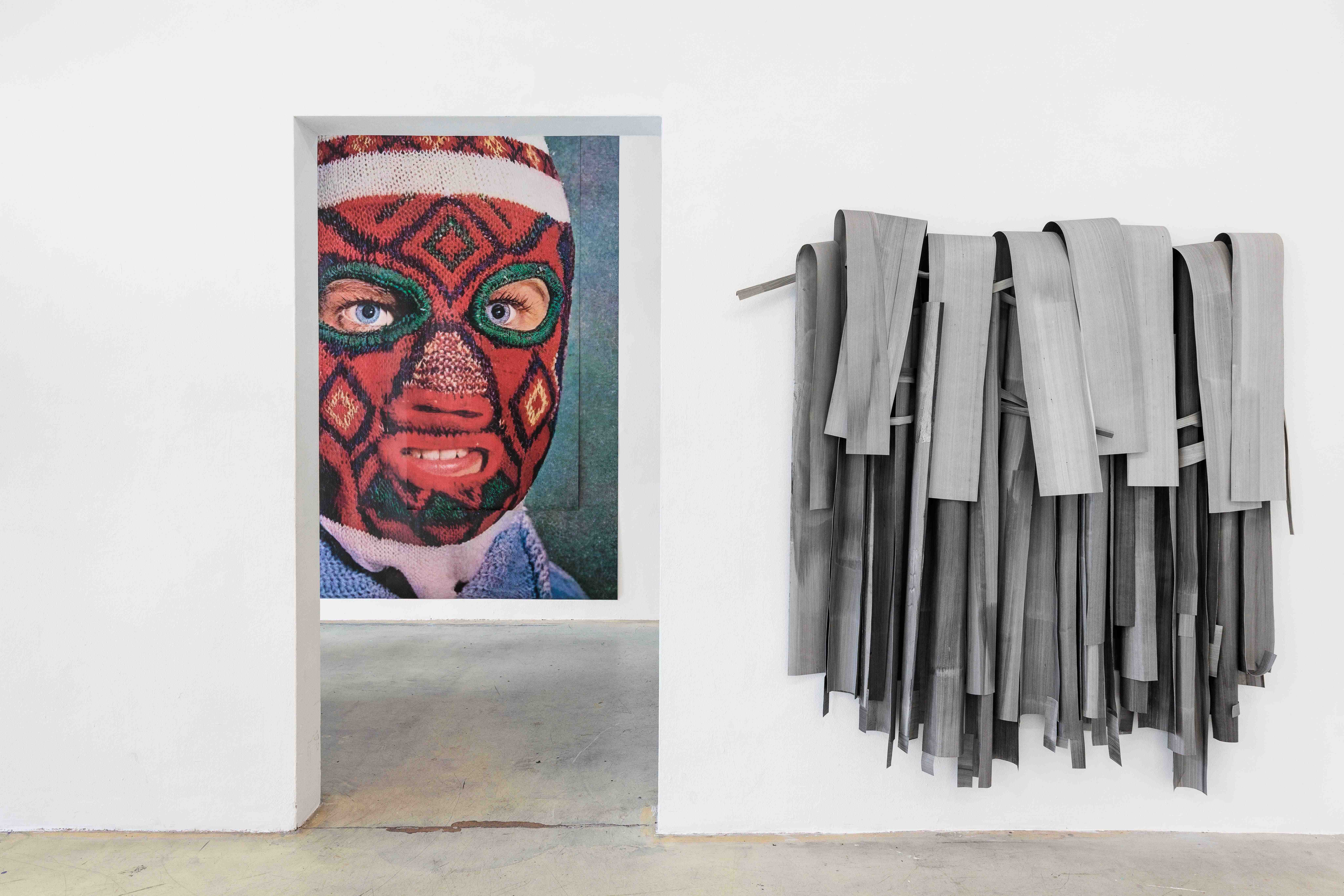
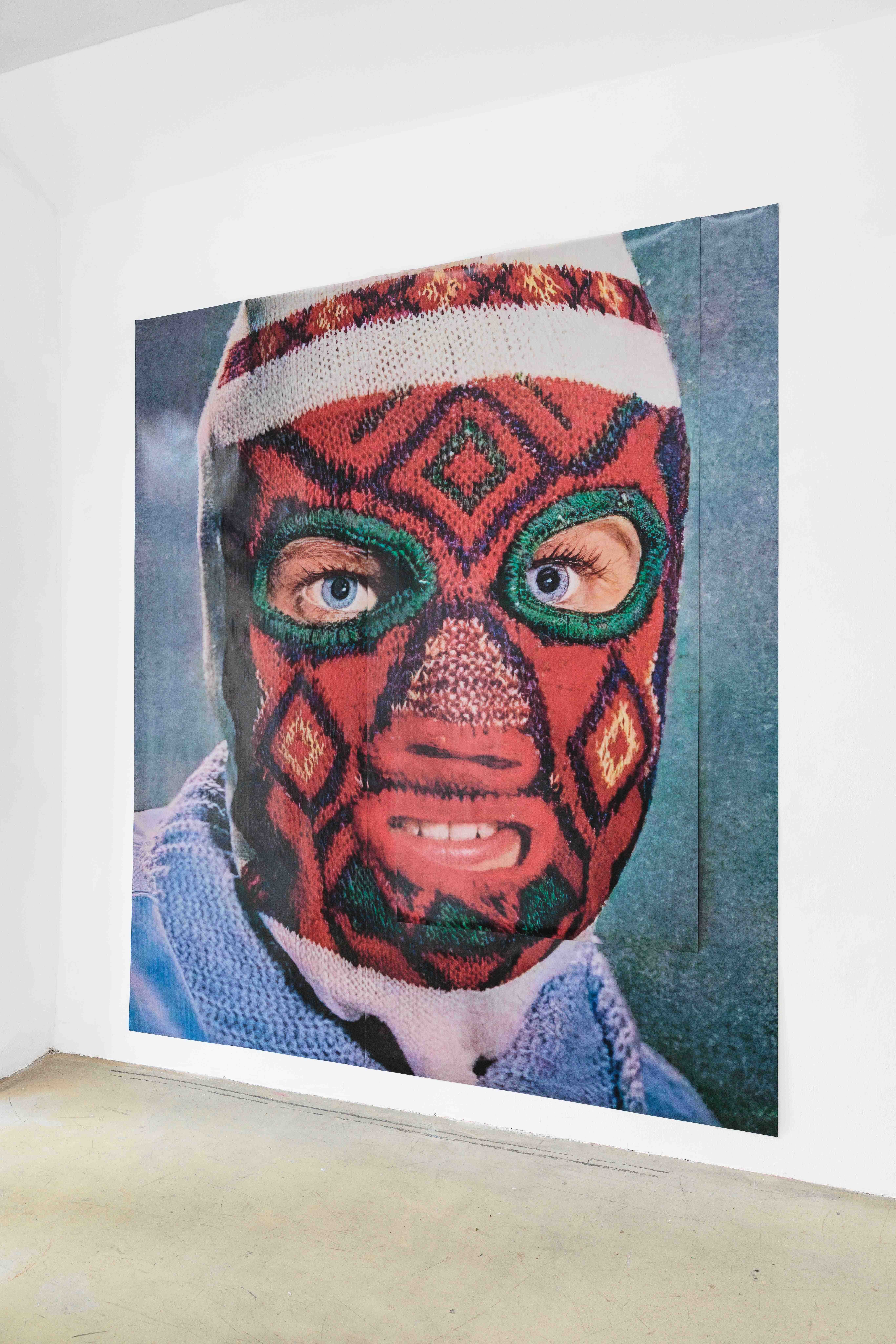
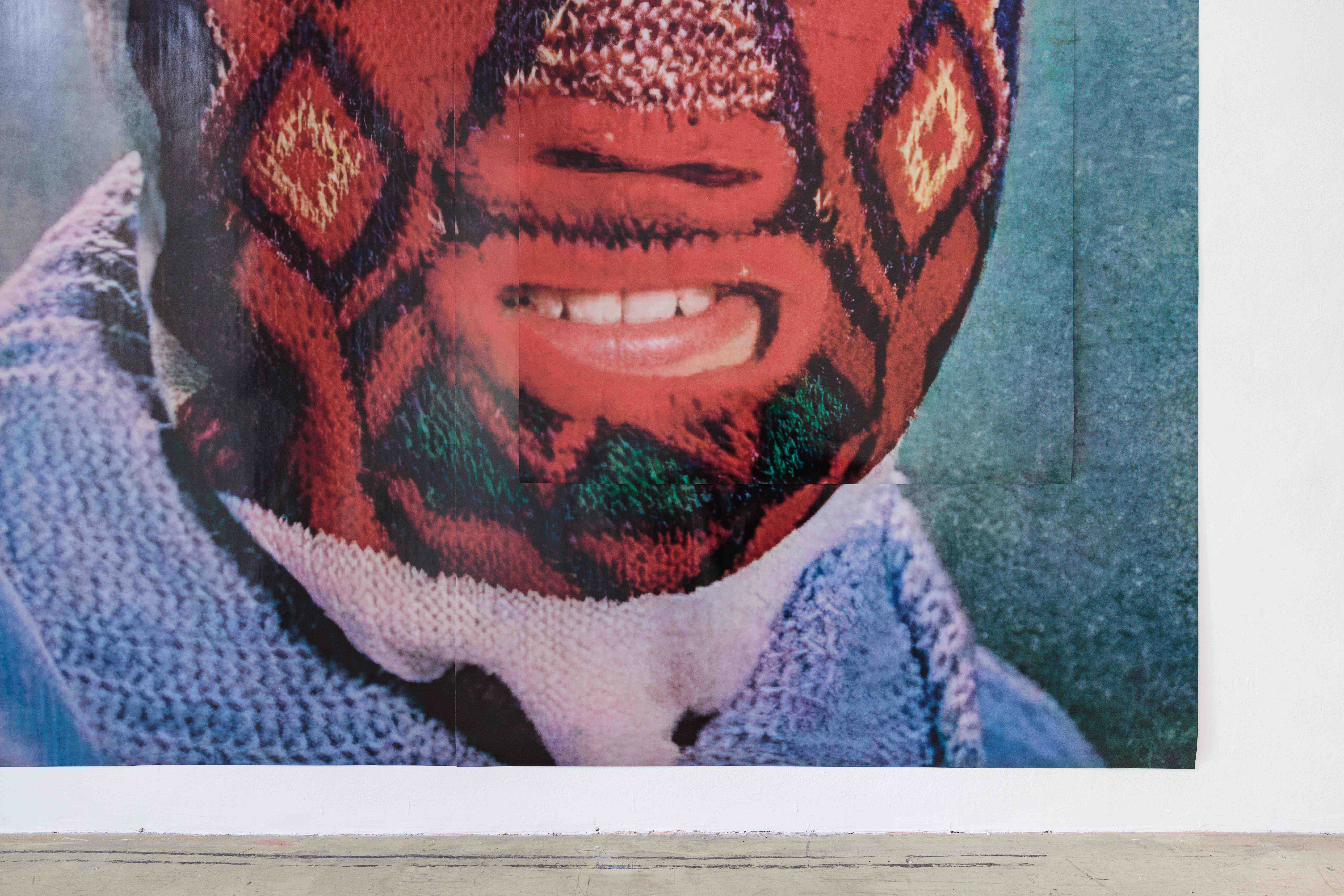
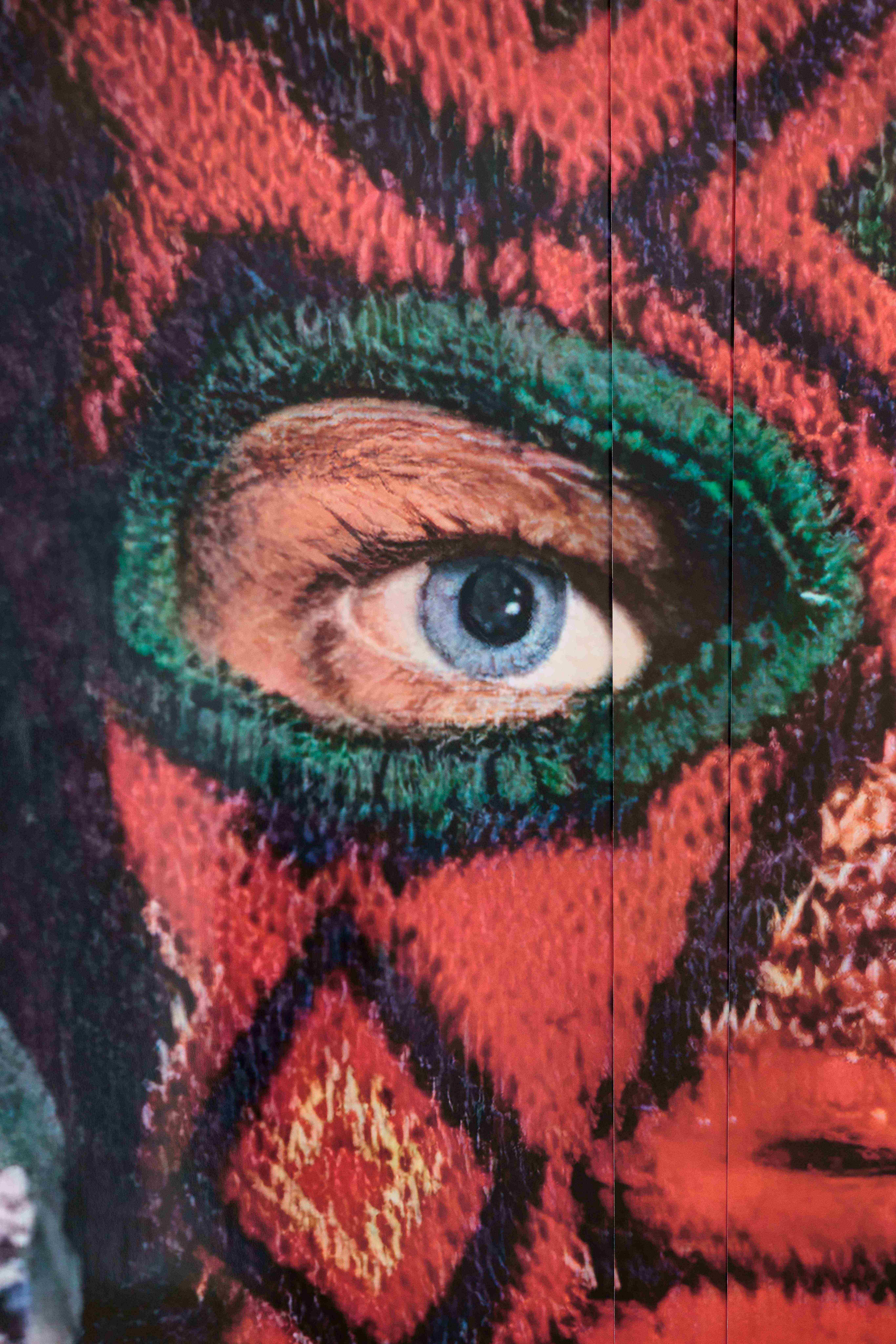
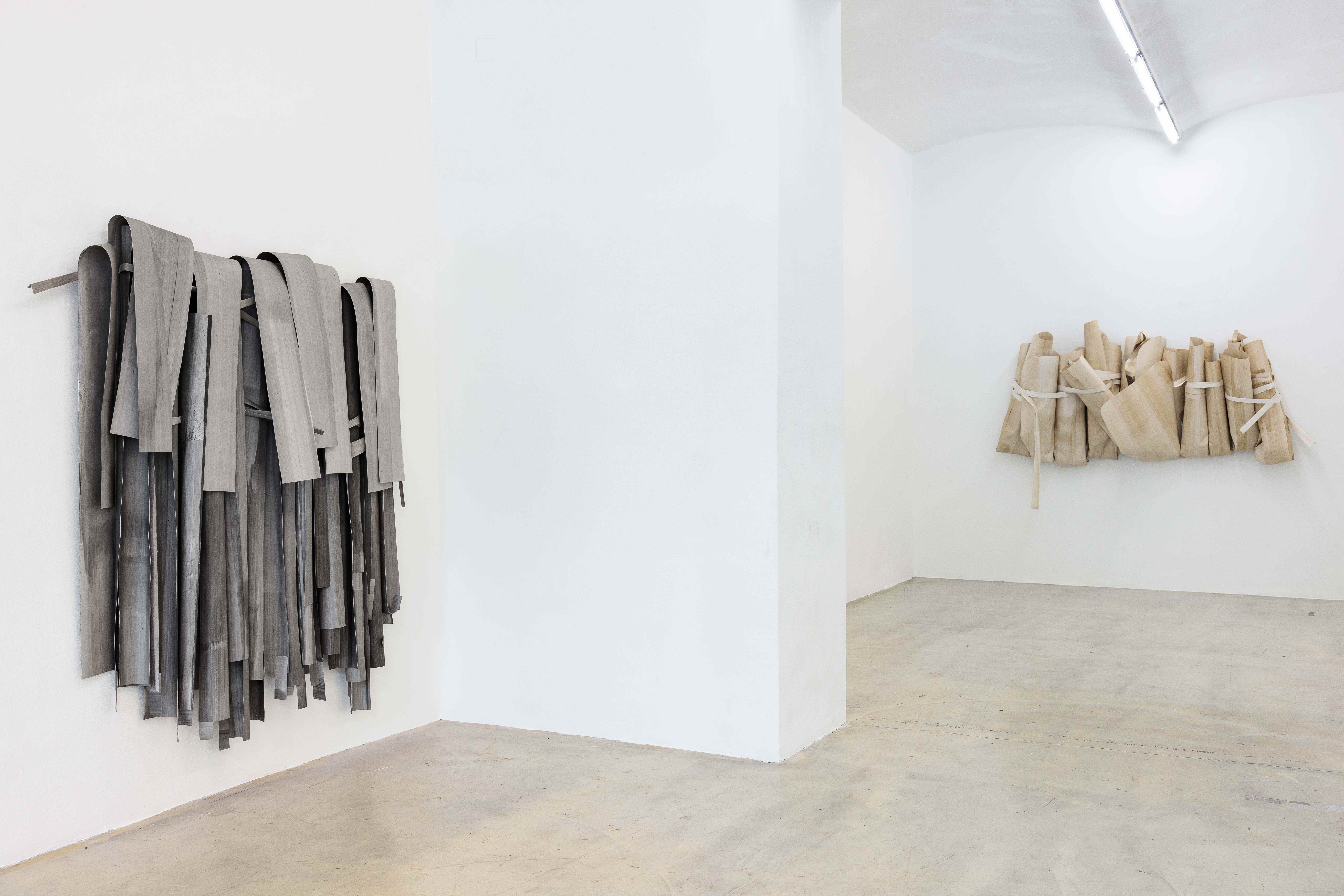
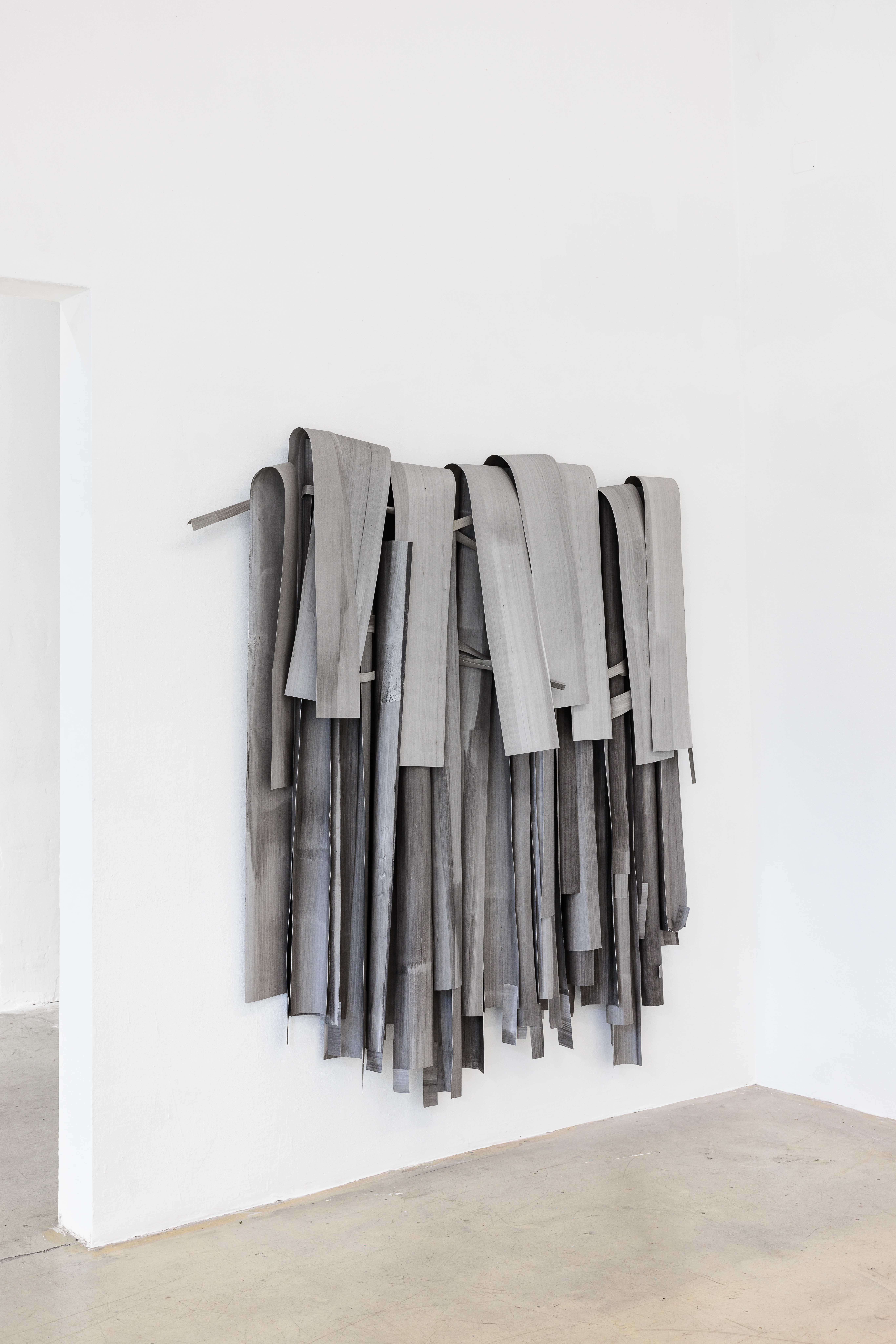




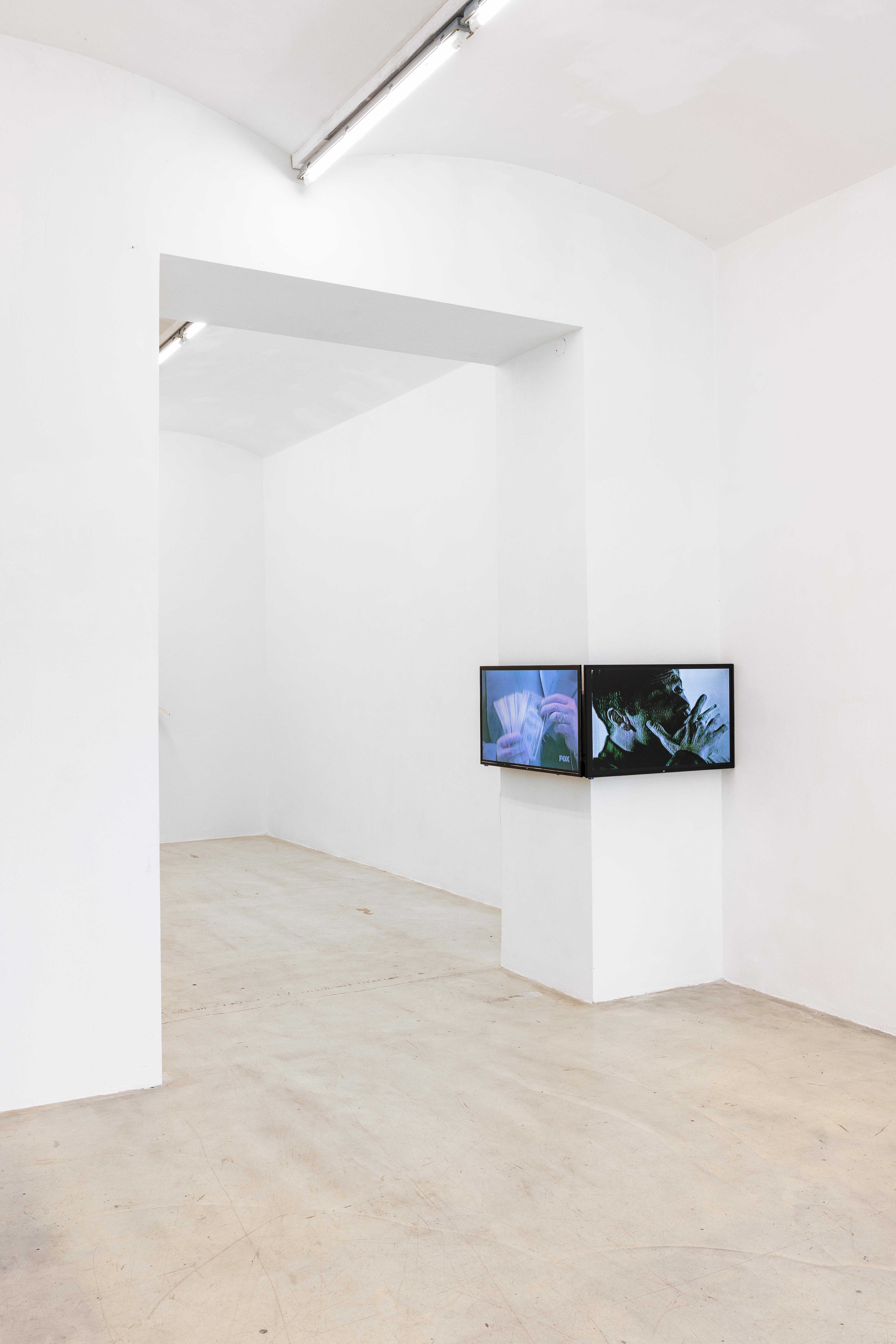

Reruns
Georgia Kaw, Lea Vajda, Sturtevant
Reruns brings together three artists whose work embraces strategies of disguise and
repetition, tension and relief, often achieving one through the other. They share a common
interest in systems of organization and order, appropriating their governing principles and
subverting or deconstructing them.
Georgia Kaw’s paper wall sculptures, Hunch and Do Not Get On Or Off During The
Closing (both 2024), exemplify such systems designed to contain without being
containers themselves. Different forces—temporal, emotional, psychological—
stretch, corrupt, or warp basic organizational logics by accelerating or deaccelerating
their system of operation. Through such transgressions, the language of order is not
altogether negated, but rather redefined as being inherently manifold, fragile, and
temporary. The works become durational and non-hierarchical in that their structure
of repetitive nodes and flaps allows for elements to be added or removed without the
order itself having to adapt.
Lea Vajda’s unknown IV (printersdevil) (2024) joins an ongoing series of print works
that uses found image material to explore concepts of identity and masking through
different strategies of portrait photography. Masks serve an abject role in that they
effect the dissolution of a subject, acting as both tools for concealment and
protection. The inherent ambiguity of the work is further reinforced by the
uncertainty of the origin of the image. Embracing the slips and limits of image
reproduction and printing methods, the artist creates glitches that break open the
surface of the image and the illusion of the hidden subject.
The Final Articulation of Origins (1999) and Shifting Mental Structures
Millionaire / Money (2000) are part of Sturtevant’s first series of videos, which she
began in 1998 when she was in her mid-70s. Lo-fi recordings of commercials,
sportscasts, and game shows are montaged into nervous sequences. The repetitive razzle-dazzle of images and sound paints a dizzying portrait of turn-of-the-
millennium consumer culture shaped by an increasing dominance of branding and an obsessive desire for immediacy and appearance.
Gloria Hasnay



